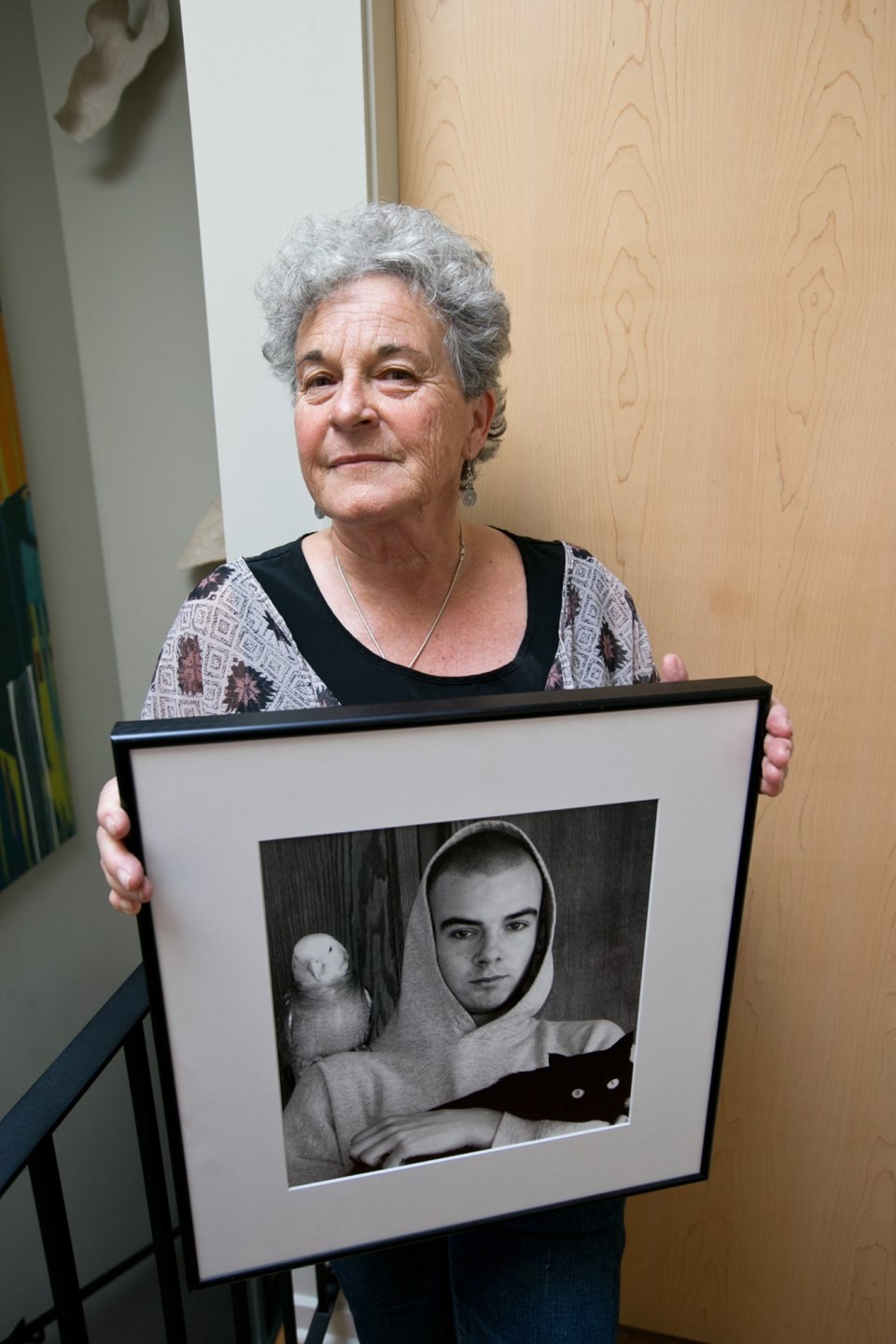Leslie McBain gets from one to six emails every day from families of people who have died from drug overdoses.
“They just want to reach out to somebody who gets it,” said McBain, an advocate and Pender Island resident who lost her 25-year-old son Jordan Miller to an overdose in Victoria in 2014.
“The standard phrase I use in response is, ‘You will survive this,’ because you do. But I feel great sorrow reading those messages,” McBain said.
She’s part of a national letter- writing campaign that will see hundreds of similar messages about overdose victims land on Prime Minister Justin Trudeau’s desk this week.
“We need to keep this on his radar. This is happening. The latest numbers are appalling. We’re still here, our kids are still dying. This is a generation we’ve lost,” said McBain, while attending a national conference on substance abuse in Calgary this past week. It brought together addiction workers, health-care professionals, researchers, policy makers and others involved with the issue.
McBain is one of the founders of Moms Stop the Harm, an advocacy group for families of overdose victims. It has more than 300 members and received international recognition from governments responding to an opioid crisis that is on track to kill 3,000 Canadians this year. Nearly half of the deaths have been in B.C.
McBain also works with the Canadian Centre on Substance Use and Addiction.
“Any other disease would see tons of money going to it — SARS, Ebola, avian flu, pick one and see the amount of money poured into prevention,” said McBain, who estimates about 400 letters have been sent to the prime minister already — including many from families on Vancouver Island.
“There are likely more, maybe thousands. We sent it out to many other groups but have no way to tell who sent letters. … Mine said: ‘I’m a mother. My son Jordan died in 2014 and I will miss him for the rest of my life.’ We said: ‘You will continue to get letters until people stop dying.’ ”
McBain said the letter campaign was inspired by public awareness campaigns during the AIDS/HIV crisis of the 1980s and 1990s that helped reduce stigma for victims.
She said issues she brought up at a roundtable with federal Health Minister Ginette Petitpas Taylor at the conference is a need for better-funding and broader public engagement.
She noted awareness campaigns like Mothers Against Drunk Driving which led to a massive reduction in drunk driving deaths in the early 1980s, were well-funded by the government and public.
“In the meeting, I said the federal government has to foot the bill and blanket the country with ads about what addiction is and the power of it to reduce the stigma of drug use,” said McBain, who pointed out that one of the largest groups at risk of overdose are men who use alone at home.
This is why many advocates are pushing the federal government to decriminalize illicit opioids and treat users from a medical perspective.
“The federal minister said she’s widening access to prescription heroin and lowering barriers to opening safe consumption sites but she did not go where we really wanted her to go,” McBain said.
“We have to decriminalize for personal drug possession and drug use. People who are addicted to drugs have a health issue for which they need medicine, like any other disease. The minister and PM are clearly not interested in that.”



